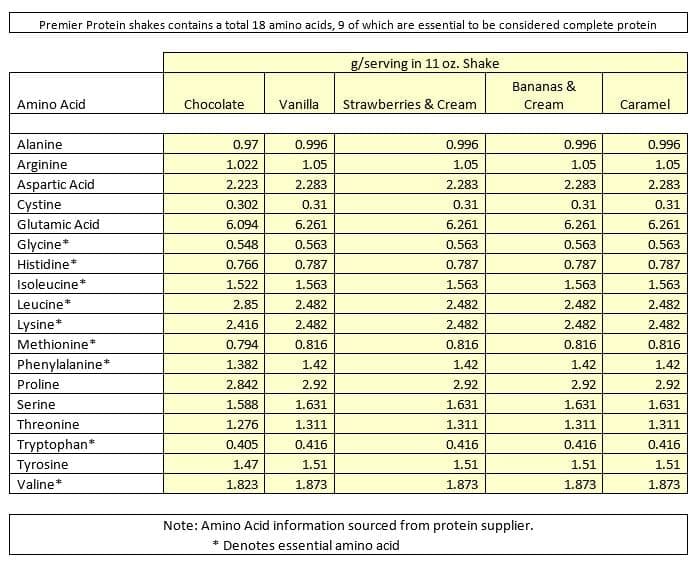Deeper Science on Protein

No doubt protein is powerful stuff. Here’s some more information on this amazing nutrient.
You already know the basics about protein. It builds and maintains muscle which shapes the body and supports optimal strength and endurance. Protein is critical for your overall health and your body structure such as bone, skin and vital organs and helps perform and regulate major functions. It supports a healthier daily metabolism and it can help curb hunger by making you feel fuller for longer.
No doubt it’s powerful stuff. Here’s some more information on this amazing nutrient.
Body Protein
Protein is the structural and functional basis of our body, accounting for roughly 16% of a lean, normal body weight, and is critical for normal operations of our body’s trillions of cells. Muscle is about 73% water and 22% protein, thus protein is more than 80% of the “dry weight” of muscle helping us understand the strong relationship between protein and muscle. Protein is the basis of bone, contributing nearly half of bone weight and supports normal body functions as hormones, enzymes and other key molecules.
Amazing Amino Acids
Amino acids are organic compounds that form proteins. They are known as the “building blocks” of protein and thus are the building blocks of life because they are required for all sorts of protein-based functions within the body. Without amino acids, and the proteins they make up, we wouldn’t exist. In addition to serving as protein building blocks, specific amino acids can serve additional and vital roles in nerve and hormonal systems as well as helping to regulate how much and what kinds of protein are in tissue such as muscle. Amino acids truly are amazing!
There are two types of Amino acids:
• Essential amino acids can’t be made or synthesized by the body, so we need to get them from the food we eat. If a protein has all of the essential amino acids it’s known as “complete.”
• Nonessential amino acids can be made by the body, so you don’t need to worry about getting them from food. Keep in mind they’re still “important,” but since your body can make them, you don’t have to worry about getting them in your diet.
Your diet needs to provide an ample supply of both types of amino acids derived from protein containing foods and supplements.
Did you know?
Great-tasting Premier Protein® shakes are considered a complete protein, delivering all 20 amino acid building blocks, including all of the essential ones.

Complete or incomplete?
If a protein supplies all of the essential amino acids in proportion to human protein, it’s called a complete protein. If it doesn’t, it’s considered incomplete. All meats, eggs and dairy products are complete proteins. Most vegetable sources, except for soy, are incomplete and require fortification or combinations of other proteins to make them complete.
Whey vs. Casein vs. Soy
These are several types of proteins that you’ll find in most protein products. So what’s the difference? They are all good and complete proteins, meaning they have all the essential amino acids as well as ample supply of the other amino acids to serve as building blocks for key body proteins and serve in other ways. However, among the differences are that whey, casein and soy proteins are digested and absorbed at different rates, which can be important depending on your nutrition and fitness goals.
• Whey protein comes from milk and is digested and absorbed the fastest of the three protein sources or any intact protein for that matter. Whey delivers the essential amino acids and has the highest concentration of specific ones called Branched Chain Amin Acids or BCAAs to help shape, build or maintain body muscle and metabolism.
• Soy protein clearly comes from soy and is next in the speed category. Soy is absorbed slower than whey but faster than casein, and is unique in that it is a “complete” plant-based proteins.
• Casein, which comes from milk, is digested the slowest, providing a more steady, longer delivery of protein-derived amino acids to the body making it a great choice in between meals and at night.
• Milk protein, which also comes from milk, is a combination of whey & casein.
You can imagine how a blend of these three could benefit active people, fueling muscles both immediately and for several hours to support your goals. That’s why high quality, delicious protein products like Premier Protein® shakes and bars rely on a mix of these proteins to deliver maximum impact. Our shakes offer a proprietary blend of milk proteins, while our bars deliver a blend of soy and whey.
